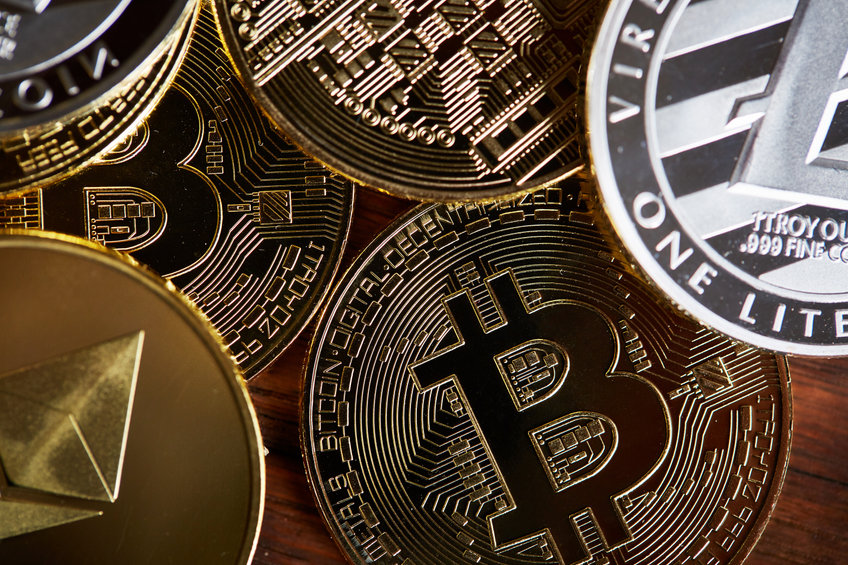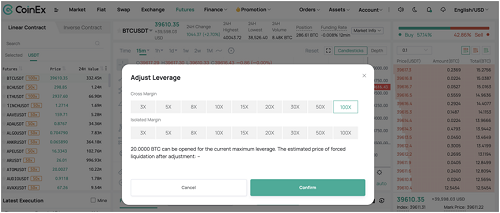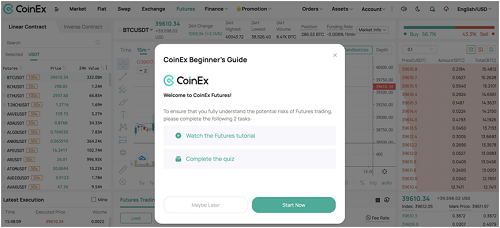
While the “crypto winter” has significantly impacted spot volumes, the opposite scenario is witnessed in the derivatives market, where trading volumes have actually exploded.
For example, an Exchange Review report (March 2022) by CryptoCompare showed that derivatives volumes increased by 4.58% to $2.74 trillion, which represents 62.8% of the total crypto market. Meanwhile, spot volumes only accounted for 37.2% of the crypto market volume.
The above stat suggests that a growing number of investors are trading derivatives like futures as they look to hedge against risks and improve capital efficiency.
CoinEx, founded in 2017, is a top professional crypto exchange and leading platform for trading futures. But here’s what you need to know before you start.
How futures work
The biggest difference between spot and futures is that the latter significantly improves users’ capital efficiency. In spot trading, users can only profit from price growth, while futures traders can cash in on rising or falling prices – as long as the price direction is right.
When trading futures, users can choose from two directions: long trades or short trades.
Long trades: User A believes that the BTC price will rise. Suppose the current BTC price stands at 40,000 USDT, and he spends 4,000 USDT on 0.1 BTC at 10x leverage. When the price rises to 45,000 USDT, he could then sell the crypto for profit. In short, this approach is called “buy first & sell later”;
Short trades: User B thinks that the BTC price will drop. Suppose the current BTC price stands at 40,000 USDT, and he spends 4,000 USDT on 0.1 BTC and sells his holding at 10x leverage. When the price drops to 35,000 USDT, he could then buy the crypto for profit. In short, this approach is called “sell first & buy later”;
Here are some basic terms you need to grasp to better understand how futures trading works.
Basic concepts of futures
Leverage: The ability to increase your capital using borrowed crypto funds, and which allows you to multiply your potential profits. At the moment, most mainstream exchanges offer a maximum leverage ratio of 100x. In this case, if you have 0.1 BTC you can open a position of up to 10 BTC. However, as it multiplies profits, leverage also increases the risks.

Margin: When trading futures, users need to pay a small amount of money according to a certain ratio as the security deposit for contract performance, which is called Margin. More specifically, the Margin required for starting your position is referred to as Initial Margin, and a proportion of the position value required to keep the position is the Maintenance Margin.
Forced Liquidation: This happens once a user’s Available Margin fails to cover the Maintenance Margin.
Funding Rate: In the crypto market, futures are divided into two categories: delivery contracts and perpetual contracts. Delivery contracts are settled every month/quarter to make sure that the futures price and the spot price stay roughly the same over the long run. Through such regular settlements, the market price of delivery contracts trends towards the spot price.
Perpetual contracts, on the other hand, do not have a delivery date. To ensure price stability, these contracts use the Funding Rate – periodic payments to long or short traders to minimize the price difference between futures and spot prices.
How to trade futures on CoinEx?
To use the CoinEX futures platform, do the following:
Step 1: Register a CoinEx account, and navigate to the futures page. If you are a new trader, learn more via the Beginner’s Guide, watch the futures tutorial, and complete the quiz.

Step 2: Transfer funds from other accounts to the futures account;
Step 3: Select a cryptocurrency for your futures position (CoinEx features over 100 cryptos for linear contracts and 2 cryptos for inverse contracts);
Step 4: Set up a leverage ratio for your position (CoinEx now offers leverage ranging from 3x to 100x);
Step 5: Adjust the margin ratio of the position according to your own risk tolerance, as suggested by CoinEx;
Step 6: Place an order according to the order types provided by CoinEx Futures.
Note: Futures contracts are a special type of investment product and the futures price, affected by multiple factors, is subject to high volatility. High leverage ratios and significant risks are the most prominent features of futures. That said, users often find it difficult to master all the characteristics of futures. Prudent decision-making is required before trading futures.
* The above cannot be relied on as any financial advice.

